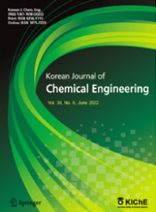Overall
- Language
- English
- Conflict of Interest
- In relation to this article, we declare that there is no conflict of interest.
- Publication history
-
 This is an Open-Access article distributed under the terms of the Creative Commons Attribution Non-Commercial License (http://creativecommons.org/licenses/bync/3.0) which permits
unrestricted non-commercial use, distribution, and reproduction in any medium, provided the original work is properly cited.
This is an Open-Access article distributed under the terms of the Creative Commons Attribution Non-Commercial License (http://creativecommons.org/licenses/bync/3.0) which permits
unrestricted non-commercial use, distribution, and reproduction in any medium, provided the original work is properly cited.
Most Cited
Analytic Method for the Design and Analysis of Geothermal Energy-Integrated Space Heating and Cooling Systems
Abstract
Novel analytic modeling and design method is proposed for the analysis of geothermal-integrated energy systems which
provide space heating and cooling. Rather than building a complex optimization framework, an analytic design procedure is
developed to determine hourly and monthly distribution of renewable-sourced energy and its sizing in a systematic manner by
considering renewable characteristics and energy storage. The new design method also allows to fully realize the advantage
of geothermal energy through the seasonal supply of heating and cooling and to accommodate variable generation of other
renewables. The benefi t of this short-cut design method has been fully illustrated with two case studies in which geothermal
energy is used for the provision of combined heat and cooling in domestic and commercial applications. Case studies also
demonstrate the impact of time-dependent generation of renewable energy on the sizing of energy suppliers and its seasonal
or hourly allocation of working loads.

